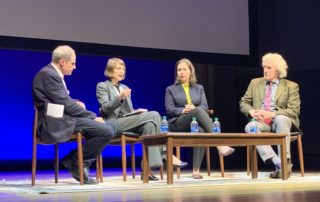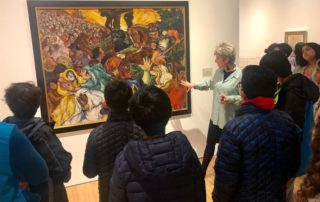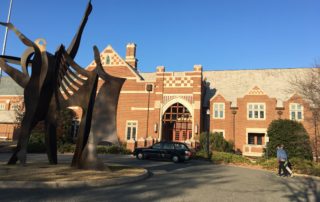Rachel Stern2020-03-03T08:46:09-05:00December 31st, 2019|Events, Past Events|
February 12, 2020 6:00-8:00pm Camp Concert Hall Modlin Center for the Arts 453 Westhampton Way Richmond, VA 23173 Information: 804-289-8276 Panel Discussion Expressionisms: Germany and the United States Among the diverse descriptive labels attached to the art of Fritz Ascher, perhaps none is more evocative and distinct than "expressionist." In the context of visual art, that term has, over the past century and a half, connoted the articulation of strong emotion--through color, brush work, and the aggressive representation of figures and the elements of nature. This discussion will consider ways in which these features, particularly in painting, can explore and have explored embodying emotion and provoking it in the viewer. Also discussed will be the relationships of political identity, the workings of [...]
Rachel Stern2020-03-03T09:15:11-05:00December 9th, 2019|Events, Past Events|
January 16, 2020 1:30-2:15pm Curator's Walk-Through Joel and Lila Harnett Museum of Art University of Richmond Museums 453 Westhampton Way Richmond, VA 23173 Information: 804-289-8276 Please join Rachel Stern, Director of the Fritz Ascher Society for Persecuted, Ostracized, and Banned Art and curator of "Fritz Ascher, Expressionist" for a walk through the exhibition. The event is sponsored by the Joel and Lila Harnett Museum of Art, University of Richmond and The Fritz Ascher Society. It is co-sponsored by Allianz Partners.
Rachel Stern2020-05-27T04:55:59-04:00August 7th, 2019|Exhibitions, Past Exhibitions|
"Fritz Ascher: Expressionist" presents works by this German Jewish artist, who lived through the Weimar Republic, the Nazi regime, and into the postwar years. With the support of prominent Berlin painter Max Liebermann, Fritz Ascher (1893–1970) studied in Berlin before traveling to Oslo, where he met Edvard Munch. During a prolonged stay in Munich, he associated with the artists who contributed to Simplicissimus magazine, and back in Berlin, he fell in with the artists of Die Brücke. His early work is steeped in old myths, spirituality, and reflections on the human condition. From 1933 he was forbidden to produce, exhibit, or sell his art. Interned at the Sachsenhausen Concentration Camp in 1938, he survived the Nazi era mostly in [...]





